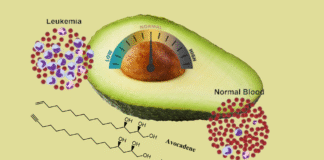According to research studies, oxidative stress may cause neurodegenerative diseases, such as Alzheimer’s and Parkinson’s diseases. Alzheimer’s disease is characterized by impaired cognitive function, dementia and memory loss, while Parkinson’s results in a reduction in dopamine. That’s why neurodegenerative conditions are often treated with agents that have the ability to counteract oxidative stress. Citrus fruits contain a variety of flavonoid compounds with high capacity to counter oxidative load. Hesperidin is one of the powerful antioxidant flavonoids in citrus fruits that could enhance the endogenous antioxidant defense system by scavenging reactive oxygen species.
Several studies have proved the neuroprotective effects of hesperidin in animal models. In one study, animals induced with Parkinson’s disease were given a 50 mg/kg dose of hesperidin for 28 days and it was found effective in reducing symptoms. According to other studies, hesperidin alleviated depression, anxiety and significantly improved spatial memory, long-term memory, and impairment in cognitive and learning abilities in rats. Not only the animal trials but also the clinical trials have demonstrated that hesperidin-enriched dietary supplements can substantially improve cognition and memory. As a result of the intake of orange juice, greater improvement in cognitive function, executive function and memory was observed in the group that consumed juice with higher hesperidin (550 mg /L) compared to the group that received a lower amount in juice (64 mg/L). In a cohort study involving more than 13000 elderly Japanese participants, the effect of consuming citrus juice on dementia was studied. The results indicated that frequent intake of citrus juice could lower the risk of dementia.
For further reading
- The Impact of Hesperidin on Cognitive Deficit and Neurobehavioural Disorders: A Systematic Review and Meta-Analysis of Preclinical Individual Studies
- Hesperidin as a Neuroprotective Agent: A Review of Animal and Clinical Evidence
- Hesperidin plays beneficial roles in disorders associated with thecentral nervous system: a review
- The benefits of hesperidin in central nervous system disorders, based on the neuroprotective effect




